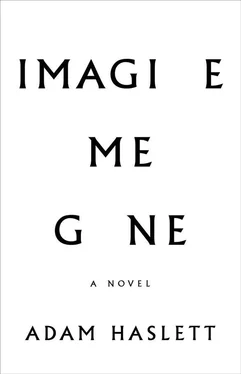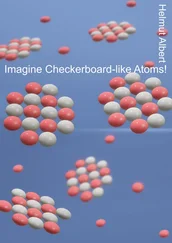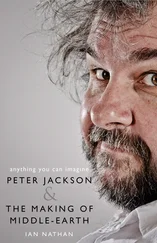I’m the only one who doesn’t always want answers. John may never articulate his questions, but they are with him, a way of being. And the children want answers to everything all the time: What’s for breakfast, for lunch, for dinner? Where’s Kelsey? Where’s Dad? Why do we have to come in? Why do we have to go to bed? Some days the only words I speak to them are answers, and reasons I can’t answer, and instructions in place of the answers they want.
The questions won’t stop up here, but once we’re on the island and the three of them are spending most of the day playing on the rocks, or in the boat with their father, or traipsing up and down from the porch to the tide pools and back with their crabs in tin saucepans, the salt water and sun will wear down the edges of their nervous energy, and now and then I’ll get to be with myself long enough that when they come back, or I spy them going about their business, I will actually see them for a moment. Which ordinarily I don’t. Sight isn’t really my sense of them. They’re touch and sound. I can look at pictures from just a few years ago and barely recognize them. But the day starts and ends with their voices and bodies. John is something else. There are parallel worlds. Apparently science says so now, too. I didn’t know it until Michael was born. Now it’s obvious. I was reading a novel the other day and some character said, “We live among the dead until we join them,” something portentous like that, dreary, and I thought, Maybe, but who’s got time for the dead with all this life, all these lives, all jumbled up?
We arrive at the little blue clapboard cabin in Port Clyde in midafternoon and go to the general store to order the propane for the morning and buy groceries. John wants us to get up early again tomorrow to get out to the island as soon as possible. He’d go this evening but by the time we got the house sorted out and the food put away we’d still be making beds by oil lamp. And besides, the children like this mainland cabin too, playing on the granite boulders that jut from its sloping lawn, dashing up and down the aluminum bridgeway that runs over the tidal flat to the jetty. I watch them at it as I get supper ready.
They sense, without noticing, the new world about them, the salted air, the clear light we don’t get farther south until autumn, the brightly painted lobster boats reflected in the rippling mirror of the bay. These are not things to pause over for them, the objects at hand always being what matter most — the chain Michael can put across the bridgeway to try to block the others from coming down, the bushes they hide behind, the tall grass they climb through, which will have Alec and Michael wheezing soon enough.
After supper, Michael and Celia are allowed to stay up for another hour reading. Though he has a room to himself at home, Alec doesn’t like being on his own when he imagines the other two are still conspiring together somewhere in the house. But tonight it’s okay because his father’s telling him a story. John never reads them books. He makes the stories up. I don’t have the energy at the end of the day for that, or his invention. He makes a ghost out of tissue paper, a king out of a wooden block, and Alec will be quieted to the point of trance, by the story, but also because his father’s attention is pouring over him, and only him, like the air of heaven. And when John leans down to kiss him good night, Alec will reach up to feel his double chin again, chubby and warm and a little scratchy, and he’ll be content in a way I can never make him because I am never the exception.
I disappear for twenty minutes into Ford Madox Ford’s The Good Soldier while John does the dishes, fighting past my initial irritation at all the class nonsense and how no one will say anything of significance to anyone else because it’s simply not done to be explicit . Like in James or Wharton. Those novels where you’re screaming at characters to go ahead already and blurt it out, save us a hundred pages of prevarication. But my pique wears off and I sink into the allure of the Ashburnhams at Nauheim, idling on the notion of how someone could so distort his life around an obsessive love, when John comes in having forgotten the dish towel still over his shoulder, and looks across the disarray of the room for the newspaper somewhere in the tote bags. He wouldn’t be able to remember where he stowed it to save his life. I reach into the side pocket of his briefcase and hand it to him.
“Did you call Bill?”
“Yes, we’re all set,” he says, already scanning the headlines, settling into the chair opposite me beneath the standing lamp.
I’m pleasantly tired enough to trust he got the dates right when he spoke to Bill Mitchell. Why it couldn’t be settled a month ago I don’t understand. I just have to assume we have our two weeks (they arrived a day early one year and we had to check into a motel). John’s absentmindedness is chronic and infuriating. Whereas I remember the dates for everything. It’s embarrassing actually to admit how much I still store in my head: our first visit to John’s parents (April 5, 1963), the day he bought his Morris Minor (March 10, 1964), and on and on. I remember the anniversaries of these events too, but I don’t mention them to people because unless it’s a birth or death or wedding I get quizzical looks, as in, Why have you bothered to retain such trivia, why does it matter? (I tell the children instead; they have no idea what I’m talking about and don’t really listen, but nod anyway before asking their next question.) It was sixteen years ago last month, for instance, that John appeared unannounced on my doorstep with a car already packed with food and wine and drove us all the way to the Highlands, to a friend’s house he’d been loaned for the weekend.
John’s friends’ houses. That’s where we spend all our vacations.
Upstairs, Celia has fallen asleep with her book propped on her chest. She rolls over without opening her eyes when I lift it from her hands. Michael’s still sitting up against the headboard reading his novel, his feet wriggling beneath the blanket. It takes him forever to wind down. Alec and Celia have simpler batteries that burn through and fade. But to Michael this is a new bed and a new room, even if he’s been here three summers in a row, and all the driving and running in the yard aren’t enough to still him. In a few days, out on the island, he’ll unclench a bit, getting into a rhythm closer to the other two, but never entirely. He’s seen me come in but keeps reading, his teeth biting softly at the inside of his cheek. I run my hand through his thick black hair, which needs a cut — it’s coming down over his eyes and ears — and start feeling for ticks. He turns his head away.
“You already did that.”
Alec is so easy to touch. He never doesn’t want to be touched. Celia’s ten now and beginning to notice she lives in a body, so touch is getting more complicated, no more clasping at my leg, more pushing and pulling and long looks. But with Michael it’s been fraught from the start. Babies are scrunched little creatures, but then they splay flat on the crib or floor. Except Michael never quite did. Like a little old man, he remained almost always hunch-shouldered and bent at the waist. He slept blessedly well but when he did cry, holding him rarely helped. I didn’t understand. That’s what a mother was supposed to do, hold her crying child. I thought maybe it was my inexperience, but then Celia came, and then Alec, and picking them up when they cried was like throwing a switch: the wailing ceased. And then I knew the difference. Celia’s and Alec’s discomforts were creaturely and fluid; they passed through them and were gone. But holding Michael had always been like holding a little person, who knew that his feeding would end, who knew that if you were picked up you would be put down, that the comfort came but also went. Without knowing what it was, I’d felt that tension in his little groping arms and fitful legs, the discomfort of the foreknowledge. Was I more skittish in my touches and kisses because I sensed my ineffectuality? I can’t say. With children, everything’s already happening and then over with. It happens while you’re trying to keep up and gone by the time you arrive at a view of things.
Читать дальше












